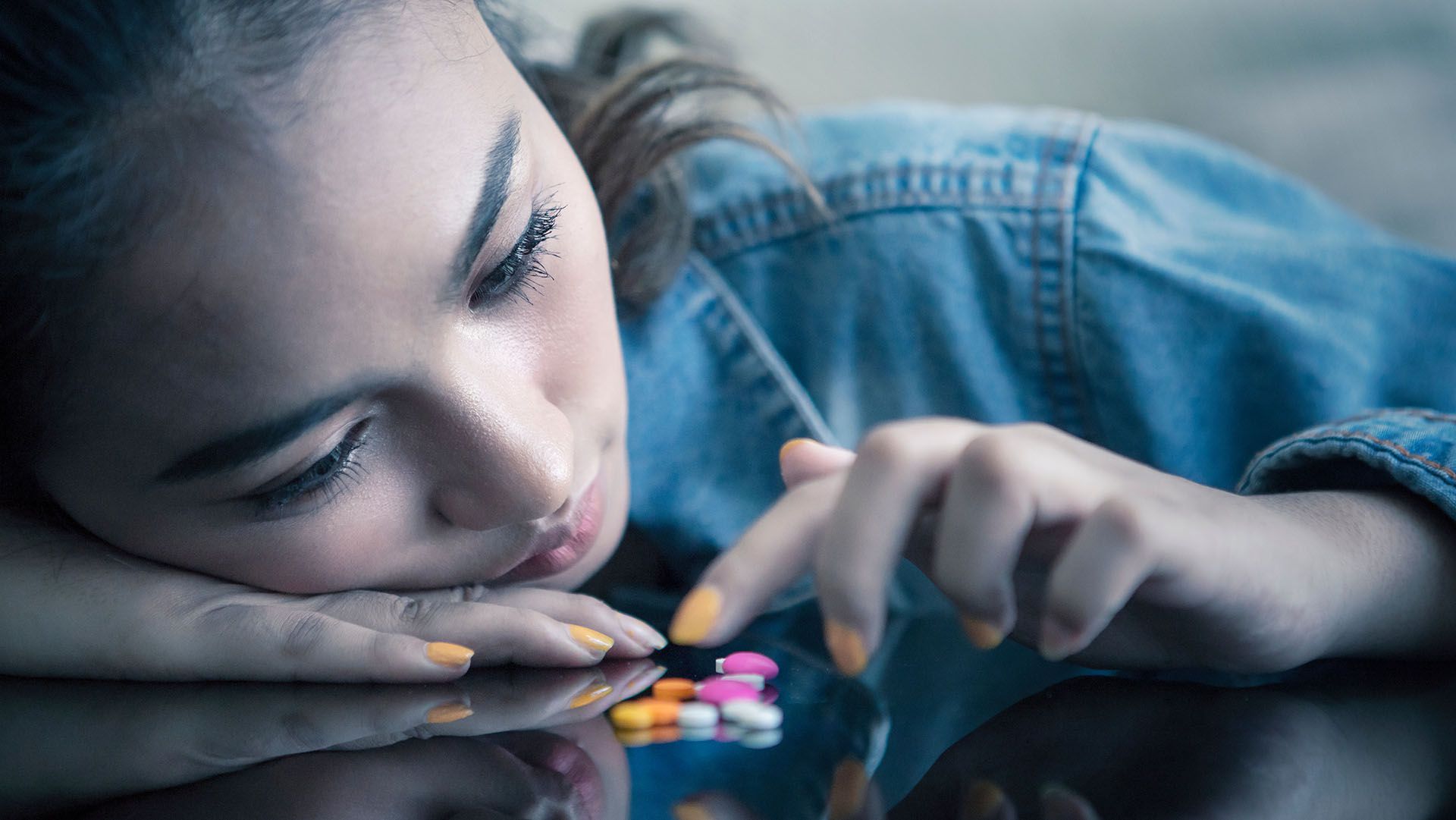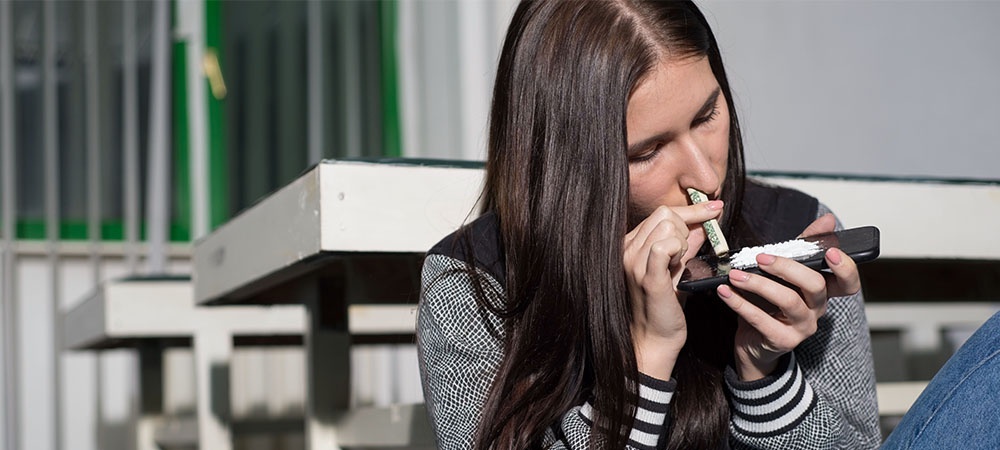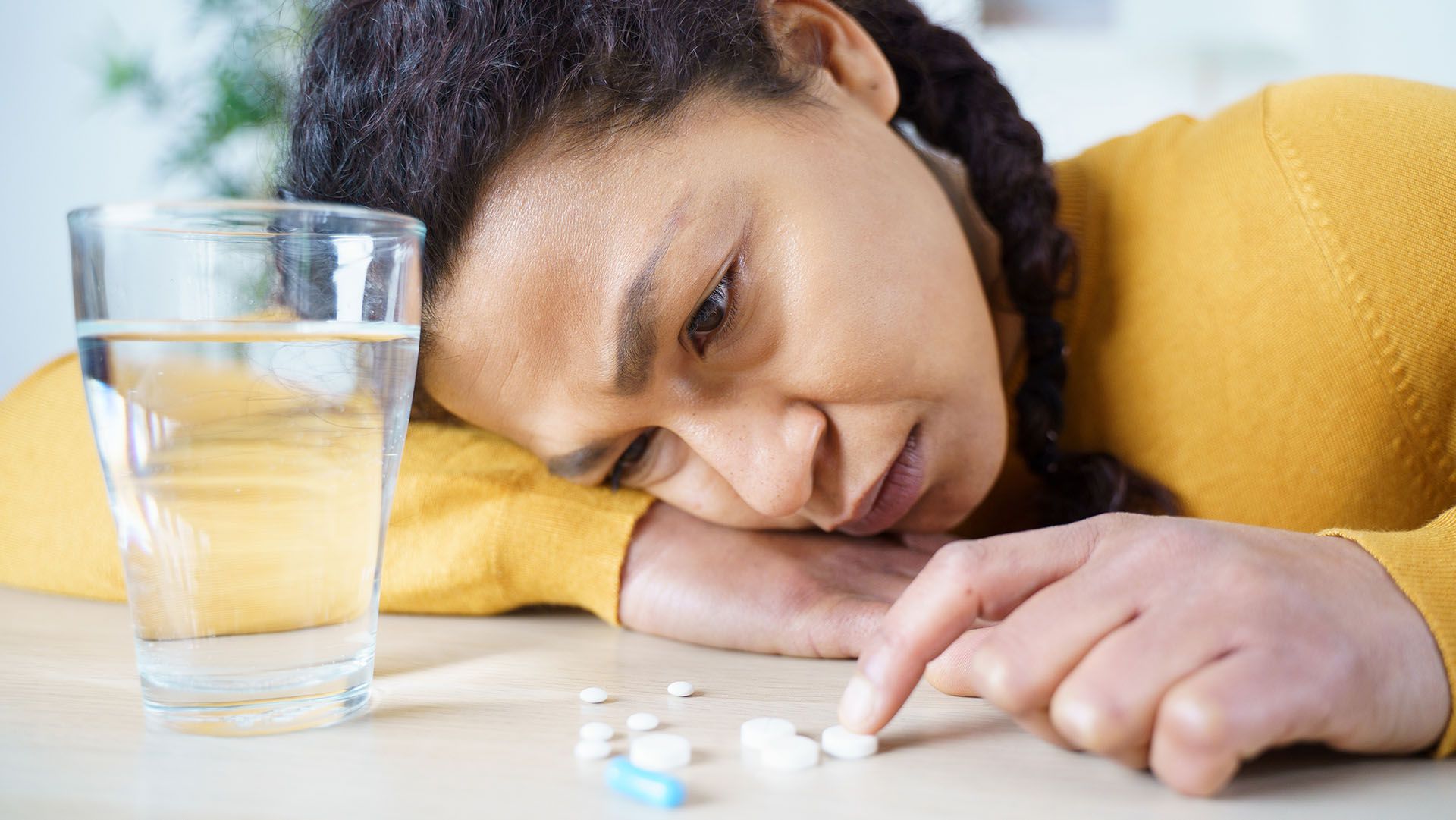Addiction in Teens
Did you know that 9/10 people who abuse substances as adults originally began experimenting with these substances before they turned 18? [1]
Many teens experiment with drugs and alcohol, but not all teens are addicted. However, teens who frequently abuse drugs may have a greater risk of developing an addiction later down the road. This is why it can be so important to talk with your kids about the dangers of addiction and ensure that these types of conversations are normal in your home.
The Dangers of Teen Drug Use & Addiction
People who began using addictive substances before 15 years of age are nearly 7x more likely to develop a substance abuse problem or addiction compared to those who delay first use until the age of 21 or older.
Physical & Psychological Addiction
When you’re dealing with substances, there is usually always a risk for addiction. Being addicted to a substance means your teen’s body becomes dependent on that substance, and they build a tolerance to that substance, meaning they need more and more of it to achieve the same effects.
Physical addiction doesn’t discriminate based on age or intent. In as little as one or two uses, highly addictive substances can become addicting. This is one effect of drug experimentation that teens don’t often think of, and by the time they realize the risk, they are already feeding an addiction that started out as seemingly harmless fun.
Addiction isn’t just physical – there are psychological components to every addiction. Cravings and drug use can be psychological and emotional. People who are psychologically addicted to substances will often feel overpowered by the desire to use – they may lie, steal or get themselves into dangerous situations trying to obtain the drug.
Mental Health Risks of Teenage Addiction
The pleasure centers of a teenager’s brain develop faster than the parts of their brain that are responsible for decision-making and risk analysis. [2] This is a big part of the reason many addiction centers will suggest your teen remain completely abstinent from drugs and alcohol until the age of 21 when those parts of their brain have had time to fully develop.
How Substance Abuse Affects the Teenage Brain:
- Substance abuse can interfere with neurotransmitters in the brain and cause damage to the connections within the brain that are used to send messages throughout the body
- Frequent substance abuse can make it more difficult for the teen to naturally experience pleasure, because of the damage to the neurotransmitters.
- A teen’s memory may be severely affected by the continued use of drugs and alcohol, as these centers of the brain are not yet fully developed in the teenage years.
- Chronic use of drugs or alcohol can lead to the brain learning unhealthy functioning habits and can inhibit brain circuitry to function normally.
- Drinking may delay puberty and have negative effects on their reproductive systems.
- Drinking may also lead to higher levels of liver enzymes, which can cause permanent liver damage.
- Drug and alcohol abuse is also linked to reduced growth potential/stunted growth.
Social Risks of Teenage Addiction
There are social risks involved in your teen’s drug use and abuse that can include things like having a criminal record, getting into a driving accident, losing their license due to driving under the influence and/or missing out on academic opportunities due to their drug use.
Drug and alcohol use by teens can also result in unplanned pregnancies, sexually transmitted infections, assault and damaged relationships with family and/or other friends who aren’t using.
How to Know If Your Teen Is Using Drugs or Alcohol
Drug use and abuse in teens have been well-researched and well-documented, and it’s a bigger problem than many parents and guardians know. There is evidence pointing to teens who get involved with drug use as early as 12 years old. This kind of data can be scary and overwhelming to parents and families who have teen kids they suspect may be experimenting with substances.
How do you know if your teenager is using drugs or alcohol?
- Create an Open Dialogue in Your Home
Having open conversations with your kids and building a line of communication can go a long way with a teenager who you suspect may be addicted to drugs or alcohol.
Many parents keep a rule that the child can call anytime day or night if they are in bad situations without risk of “getting in trouble” – as this is one of the biggest reasons teens don’t feel they can confide in their parents.
- Just Ask Them
While your teen may not give you an honest yes or no answer, monitoring their behaviour when you ask if they are experimenting with drugs or alcohol can often give you an answer. Your teen may be defensive about the topic, which could raise concerns if they are hiding something from you.
- Watch For Changes in Their Mood or Behaviour
While your teen’s general behaviour may be able to tell you if they are hiding a substance abuse problem, pay particular notice to how they act when they first arrive home. Teens struggling with addiction may be withdrawn, secluded and sullen. They may be noticeably intoxicated, or they may try to hide from you for hours after coming home from a night out with friends.
Paying attention to your child’s behaviour and recognizing things that are out of the norm for them can help you stop substance abuse early, and can often tell you if they have any underlying mental health concerns that should be addressed.
- When To Search Your Teen’s Belongings
While searching your teen’s room, backpack or car can feel like you’re invading their privacy (and in a way, you are), your rights as a parent don’t go out the window because they can drive. This extreme measure is often the last resort for parents and is often to confirm a very strong suspicion they’ve had for a while.
This can be a really tension-fueled step because no one likes having their things searched through. If you suspect you will find drugs or alcohol amongst your teen’s belongings, be prepared to explain the reasons for your search and ask them if there is anything they would like to tell you before you look around.
Warning Signs That May Suggest A Teen May Be Developing an Addiction
There are certain signs you can look for that may let you know there is a problem. While these signs are often indicators of addiction and/or substance abuse, they can also be the warning signs for mental health concerns such as depression.
Keeping an open dialogue with your teen children and ensuring they feel their home is a safe space to talk about anything problematic can help you build a line of trust and communication with them.
Some of The Warnings Signs Your Teen Might Be an Addict Can Include:
- Smelling alcohol or chemical odours on their clothes
- Intoxication, dizziness or behaviour that suggests they have been drinking or are experiencing alcohol withdrawal
- Changes in friend groups, socializing with people you may suspect are using drugs
- Arguments in the home, sudden mood changes or violent behaviour that is typically not the way they are
- Weight gain or dramatic weight loss
- Loss of interest in extracurricular activities or hobbies they once enjoyed
- School problems such as detentions, missing classes, failing grades
- Running away from home, staying out/missing curfew
- Talk of depression or suicide, an interest in death or risky behaviour
- Changes in sleeping and eating habits
- Poor hygiene
- Avoiding eye contact
- Secretive behaviour
- Bloodshot or red eyes
Getting Help For Your Teen’s Drug or Alcohol Addiction
The first step in dealing with teen addiction is acknowledging the problem and coming up with a solution as a family on how to handle this problem. If you think your son, daughter or another teen you know may be struggling with drug or alcohol addiction, there are ways you can seek help for them.
There are plenty of drug and alcohol treatment programs that are geared towards the teen age group that can help them combat addiction. Not only will your teen have access to therapy, 12-step groups, support groups and medical staff at a treatment center, but treatment centers for teens are designed for providing care to the teen’s mind and body.
Rather than focusing solely on the drug or alcohol problem, teen addiction centers will often create an all-encompassing plan that is catered to people their age struggling with addiction.
Some things that will be beneficial for your teen when entering a treatment program can be things like addressing co-occurring mental health disorders, building healthy coping techniques, boosting socialization skills, bridging educational gaps and addressing any family or personal trauma they feel may have led them to experiment with drugs.










